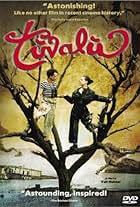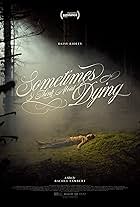How the American auto industry engineered the demise of city public-transit systems.How the American auto industry engineered the demise of city public-transit systems.How the American auto industry engineered the demise of city public-transit systems.
- Awards
- 1 win
Photos
Francis V. du Pont
- Self
- (archive footage)
Roy Fitzgerald
- Self
- (archive footage)
Ben Grauer
- Newscaster
- (archive footage)
Edwin 'Jay' Quinby
- Self
- (archive footage)
Betty Rollin
- Newscaster
- (archive footage)
Storyline
Did you know
- Quotes
Narrator: Weren't the streetcars making money?
Barney Larrick: Not after I got done chopping heads off, they weren't making money. Reduce service, make it less attractive to the customer, sell off property and holdings, take the money out, raise fares, suck the company dry, pull the company down. That's what we did.
- ConnectionsVersion of 60 Minutes: Clang, Clang, Clang Went the Trolley (1987)
Featured review
This documentary has some of the trappings of propaganda -- insinuations, gloomy music, a paucity of defense from the other side -- but it's still convincing. It's detailed, not sleazy, it's designed for adult consumption, and it makes sense.
I'm no conspiracy theorist. My paranoia quotient is low -- too low, which makes me an easy sell for shams, shoddy goods, and women of low morals. But this conspiracy is logical. I mean, it involves not just a single industry, say the automobile industry, but an entire umbrella organization of all the industries that profit from the building of highways and the sale of cars: the auto industry, of course, but also cement, rubber, petroleum, and construction.
The lobby is a powerful one, though we hear little about because it's disguised under a dozen different fronts. And it works. We can see it working. Money talks, and it talks through the House of Representatives.
What's also persuasive is that the documentary doesn't argue that automobiles are evil in any way. The plea expressed by such enlightened mayors as Joseph Allioto of San Francisco, is that cars and mass transit must exist side by side, that the relationship is complementary not adversarial.
The historical sketch goes as follows. Before 1920, roughly, one out of ten Americans owned a car. Most transportation was by rail, and in the cities that meant electrically powered trolleys, which are cheap and less polluting. They had the right of way in the center of the street.
General motors moved in and bought the trolleys, scrapped them, and replaced them with buses, which were slower and less efficient. (Diesels leave a cloud of black particulate matter behind.) Then money was poured into highways, including the interstate highway system, and mass transportation was cut back, line by line, in a predictable spiral.
Hypothetically, if you have plenty of buses running at 100 percent capacity and raking in profit, and you then cut the lines and schedules by fifty percent and keep the rest running in the least profitable areas, you can legitimately claim that you're shutting down mass transit because it's unprofitable.
There are community activists for arguing in favor of a blend in urban areas, Lewis Mumford was one, but there is no discernible lobby and not much money because the people who are most hurt by the absence of mass transit are those who are less well off. The wind up is a few hundred angry city dwellers who are losing their homes and businesses because a freeway is bisecting their neighborhoods -- against the oil/cement/rubber/construction/automobile lobby. It reminds me of an appearance in traffic court in which my case was announced: "The state of California versus (insert my name), unemployed laborer." Pretty intimidating.
I won't go on about the argument presented in this documentary. I will add some data that came from the San Jose Mercury-News, a highly responsible journalistic enterprise. The issue had to do with providing light rail traffic from suburbs to Sacramento OR adding more highways and more lanes to the highways already in existence. The reporter toted up the cost of each alternative and the results weren't even close. Nevertheless, the highway argument prevailed. My letter to Sacramento received a snotty reply.
I'm no conspiracy theorist. My paranoia quotient is low -- too low, which makes me an easy sell for shams, shoddy goods, and women of low morals. But this conspiracy is logical. I mean, it involves not just a single industry, say the automobile industry, but an entire umbrella organization of all the industries that profit from the building of highways and the sale of cars: the auto industry, of course, but also cement, rubber, petroleum, and construction.
The lobby is a powerful one, though we hear little about because it's disguised under a dozen different fronts. And it works. We can see it working. Money talks, and it talks through the House of Representatives.
What's also persuasive is that the documentary doesn't argue that automobiles are evil in any way. The plea expressed by such enlightened mayors as Joseph Allioto of San Francisco, is that cars and mass transit must exist side by side, that the relationship is complementary not adversarial.
The historical sketch goes as follows. Before 1920, roughly, one out of ten Americans owned a car. Most transportation was by rail, and in the cities that meant electrically powered trolleys, which are cheap and less polluting. They had the right of way in the center of the street.
General motors moved in and bought the trolleys, scrapped them, and replaced them with buses, which were slower and less efficient. (Diesels leave a cloud of black particulate matter behind.) Then money was poured into highways, including the interstate highway system, and mass transportation was cut back, line by line, in a predictable spiral.
Hypothetically, if you have plenty of buses running at 100 percent capacity and raking in profit, and you then cut the lines and schedules by fifty percent and keep the rest running in the least profitable areas, you can legitimately claim that you're shutting down mass transit because it's unprofitable.
There are community activists for arguing in favor of a blend in urban areas, Lewis Mumford was one, but there is no discernible lobby and not much money because the people who are most hurt by the absence of mass transit are those who are less well off. The wind up is a few hundred angry city dwellers who are losing their homes and businesses because a freeway is bisecting their neighborhoods -- against the oil/cement/rubber/construction/automobile lobby. It reminds me of an appearance in traffic court in which my case was announced: "The state of California versus (insert my name), unemployed laborer." Pretty intimidating.
I won't go on about the argument presented in this documentary. I will add some data that came from the San Jose Mercury-News, a highly responsible journalistic enterprise. The issue had to do with providing light rail traffic from suburbs to Sacramento OR adding more highways and more lanes to the highways already in existence. The reporter toted up the cost of each alternative and the results weren't even close. Nevertheless, the highway argument prevailed. My letter to Sacramento received a snotty reply.
- rmax304823
- Aug 29, 2015
- Permalink
Details
- Runtime52 minutes
- Color
Contribute to this page
Suggest an edit or add missing content








